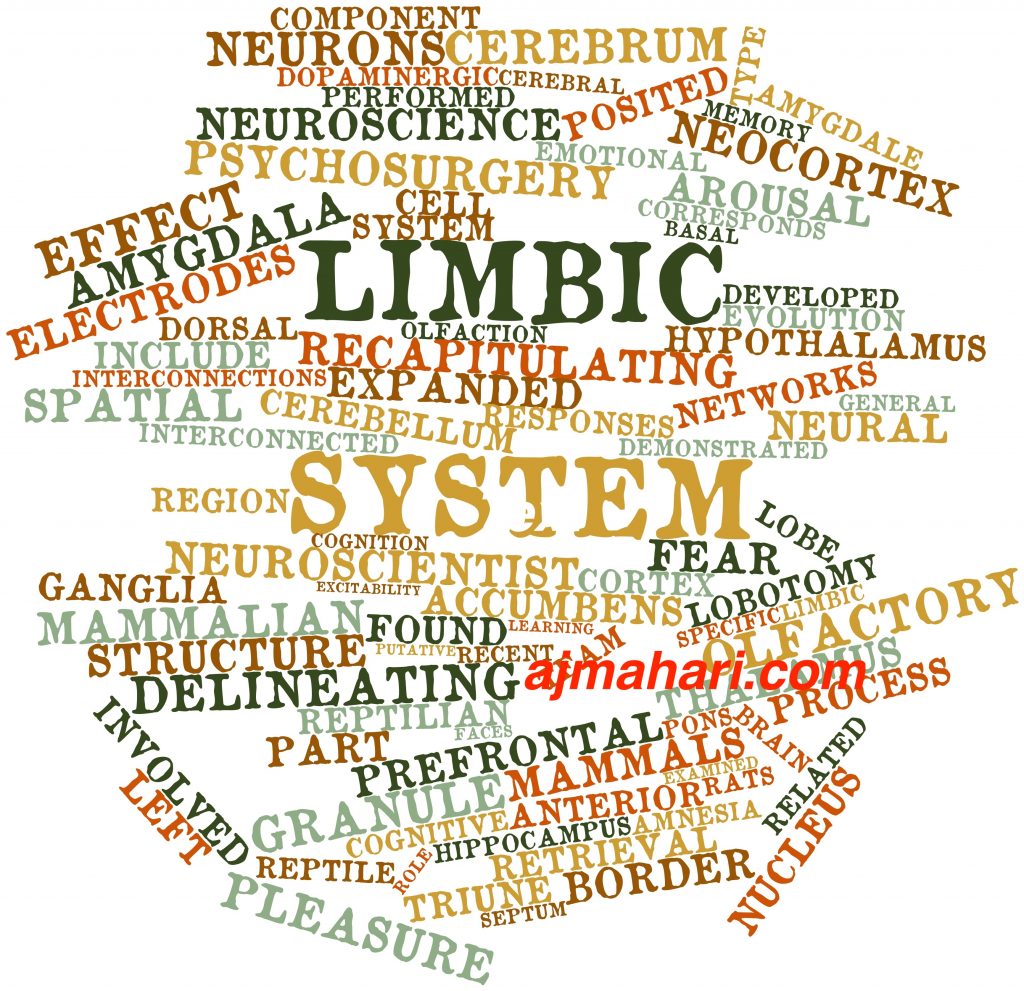Prolonged stress and exposure to narcissistic abuse can cause the hippocampus to shrink, which effects your short term memory. This type of stress, trauma and abuse also causes the amygdala to swell. This is a direct result of the psychological trauma and stress of narcissistic abuse that also very much has negative, impacting effects on your brain.
The good news is that these mind-body brain (limbic system) injuries due to narcissistic abuse can be, over time, healed in a variety or ways. This is another reason why people must take this severe gaslighting emotional abuse which causes psychological trauma, Complex Post Traumatic Stress Disorder (CPTSD) for so many victims and that at a brain level in your limbic system very serious changes can be occurring that will mean you are also physically not well.
-
The cortex – the outer surface, where higher thinking skills arise; includes the frontal cortex, the most recently evolved portion of the brain
-
The limbic system – the center of the brain, where emotions evolve
-
The brain stem – the reptilian brain that controls basic survival functions
When we experience stress, our body floods the body with cortisol, a stress hormone resulting in a “fight or flight” or “freeze” or “fawn” responses. High levels of cortisol may damage or destroy cells in the hippocampus, according to the New York University Medical Center.
Along with the impacts of high levels of cortisol over longer times of abuse, trauma, and stress the body limbic system’s over activity can lead to other breakdowns in the central and peripheral nervous systems. This limbic system over-firing can also lead to autoimmune disorders, other diseases, but also to a host symptoms, within or apart from them, that effect the Endocrine System which the body’s chemical messenger system that consists of hormones. These hormones help to regulate the functioning of target organs in the body to maintain homeostasis. These organs include:
-
Endocrine Glands
-
Thyroid Gland
-
Adrenal Glands
-
The Hypothalamus – the neural control center for all endocrine systems
In many cases, thought it is not only the result of psychological stress, a component, for many plays a significant role, in the (but not limited to) the following examples of common autoimmune disorders:
-
Addison’s disease,
-
Ankylosing spondylitis,
-
Celiac disease,
-
Diabetes mellitus type 1,
-
Chronic Fatigue Syndrome/M.E.
-
Systemic Lupus Erythematosus (SLE),
-
Sjögren’s syndrome,
-
Hashimoto’s thyroiditis,
-
Graves’ disease,
-
Multiple Sclerosis,
-
Primary Biliary Cirrhosis,
-
Rheumatoid Arthritis (RA),
-
Sjogrens disease, and allergies
-
Adrenal Fatigue
The Stress-Autoimmune Response
“Of course, stress alone does not cause autoimmune diseases…and removing stress alone does not cure (them). But relaxation can help one’s body to heal and to respond to the advanced medications that have been developed in recent years to treat such diseases. The treatment of autoimmune disease should …include stress management and behavioral intervention to prevent stress-related immune imbalance.” Esther Sternberg, MD. “The stress response and autoimmune disease–what have we learned? “
High levels of stress, including infection and psychological distress, are known to commonly precede the development of autoimmune disorders. Retrospective studies found that a high proportion (up to 80%) of autoimmune disorder patients reported uncommon emotional stress prior to onset which strongly suggests that stress related hormones may play a role in the development of these disorders.
Given the tight interaction between the stress response and immune systems, with both axes of the stress response being important immune regulators, it is becoming much more understood that the neuroendocrine system is a major area of research in autoimmune conditions (as it has been in ME/CFS) and that behavioral interventions to reduce stress are used in both types of disorders to reduce symptoms. (Both axes of the stress, the HPA axis and the sympathetic nervous system, appear to be perturbed in ME/CFS.)
This is the tip of the iceberg in what many people are dealing with from the trauma and unrelenting stress and distress of Narcissistic Abuse. I will blog more soon about what is now known and increasingly better understood about the H.P.A access – The Hypothalamic-Pituitary-Adrenal (HPA) Axis.
The main point of all of this information is to be another source of letting people know that they really need not only emotional, psychological, and spiritual relief from Narcissistic abuse but also very much, in an urgent way, with regard to your health, you need to get away from any abuser and limit your focus on them to take proper care of yourself and hopefully protect your health or if you are dealing with one of the above issues learn what you are dealing with physically and how to reduce symptoms and in many cases recover.
Prolonged exposure to toxic stressful and abusive people, BPD, NPD, others as well, is just not at all good for your physical health as well as the negative impacts to your sense of self, your emotional, psychological and spiritual well-being. If you haven’t already sought the harm reduction you need by getting out of an abusive and/or traumatizing relationship please know that you need to as soon as possible. Your life, may literally depend on it from the standpoint of lost physical and emotional/mental health.
© A.J. Mahari – March 28, 2019 & Video Content October 21, 2018 – All rights reserved.


